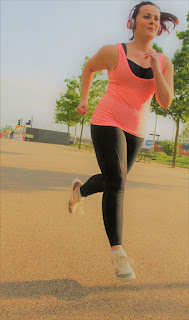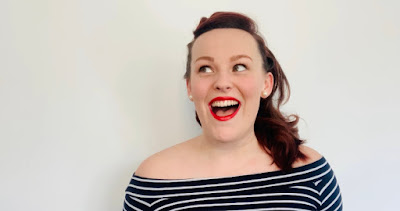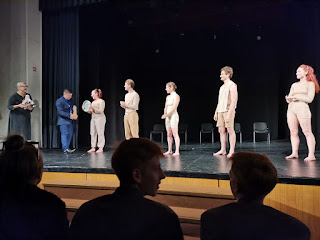In Conversation...
In Conversation!
The Gender Parity movement has explored this for a number of years and found that bias exists even in studies with exactly the same plays submitted but under male/female pseudonyms! Readers for this experiment were genuine Artistic Directors and Literary Managers, people who are making these day-to-day decisions on what productions to take forward and produce. The only way to make a change is to better understand the systemic problems within the industry and the reason this bias exists to this day.
Lisa Kron: I didn't start out as a writer. I was an actor. But I was told from the very beginning that there was no place for me in the theater.
Lucy Simon: Who told you that?
Lisa: My college theater professors who said, "You either need to lose fifty pounds or gain fifty pounds." As I like to say, I was told I was a character actress, which was a code word I realised later for "lesbian"…This professor said to me in a completely matter-of-fact way, "Well obviously, as you know, you don't convey any sexuality onstage." Why you would say that to a nineteen-year-old girl—
Whilst researching further in to my topic for the inquiry in Module Three, I found this incredible article which facilitates a discussion between a group of prominent writers in musical theatre. What strikes me is that so many of these female writers have stories about being actors first and writing their own work because they have been told there's 'no place' for them in the industry. Even after a number of jobs over a few years after drama school, I strongly felt that the roles were either just not there or I wasn't the 'ingenue' but was too young for the stronger, more mature roles. 'General feedback' from auditions for the first few years of my career were constantly very similar- often I'd be told that the panel 'loved my audition' but 'didn't know where to place me' or that I 'wasn't the right fit' which I began to really assess. It's a strange feeling to be told this because it makes you question whether you're just not the 'commercial type' in your chosen profession. There is a direct correlation between how I felt at this point and why I was writing complex Northern women in to my female-led play. Creating your own work is a means to see yourself represented. It's interesting to hear this echoed by female writers' at the top of their game, it really shows how entrenched this feeling is within the wider theatre industry in the UK and across the pond.
But these are narrative accounts from women in theatre- is this 'feeling' backed up by the statistics?
Well...
'1. Studies have shown that a script submitted with a male author’s name will get better recommendations from literary departments than the same script submitted with a female author’s name. So the quality of the script gets overshadowed by gender bias'
 |
| Marathon For You- Poster image from my female-led play |
The Gender Parity movement has explored this for a number of years and found that bias exists even in studies with exactly the same plays submitted but under male/female pseudonyms! Readers for this experiment were genuine Artistic Directors and Literary Managers, people who are making these day-to-day decisions on what productions to take forward and produce. The only way to make a change is to better understand the systemic problems within the industry and the reason this bias exists to this day.


Comments
Post a Comment